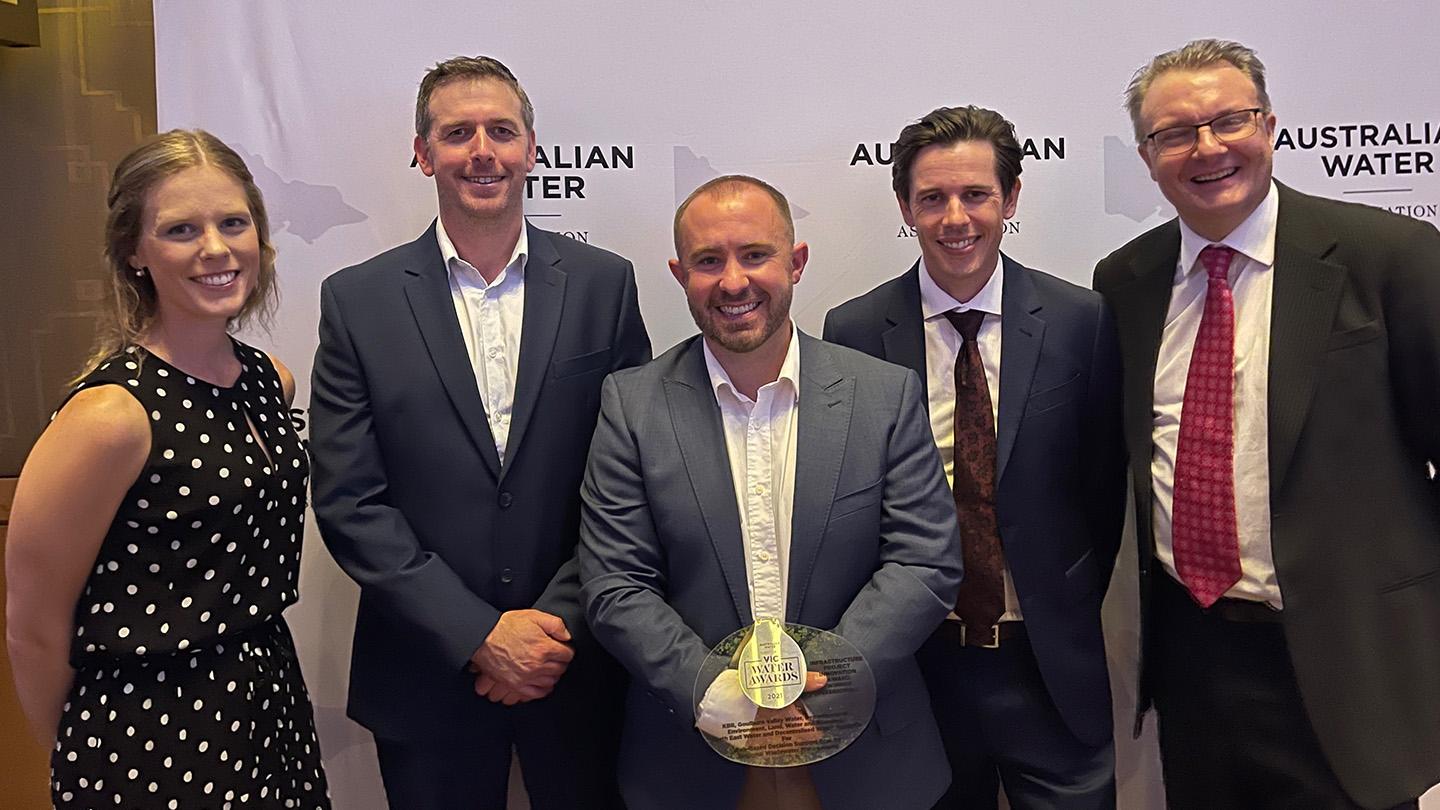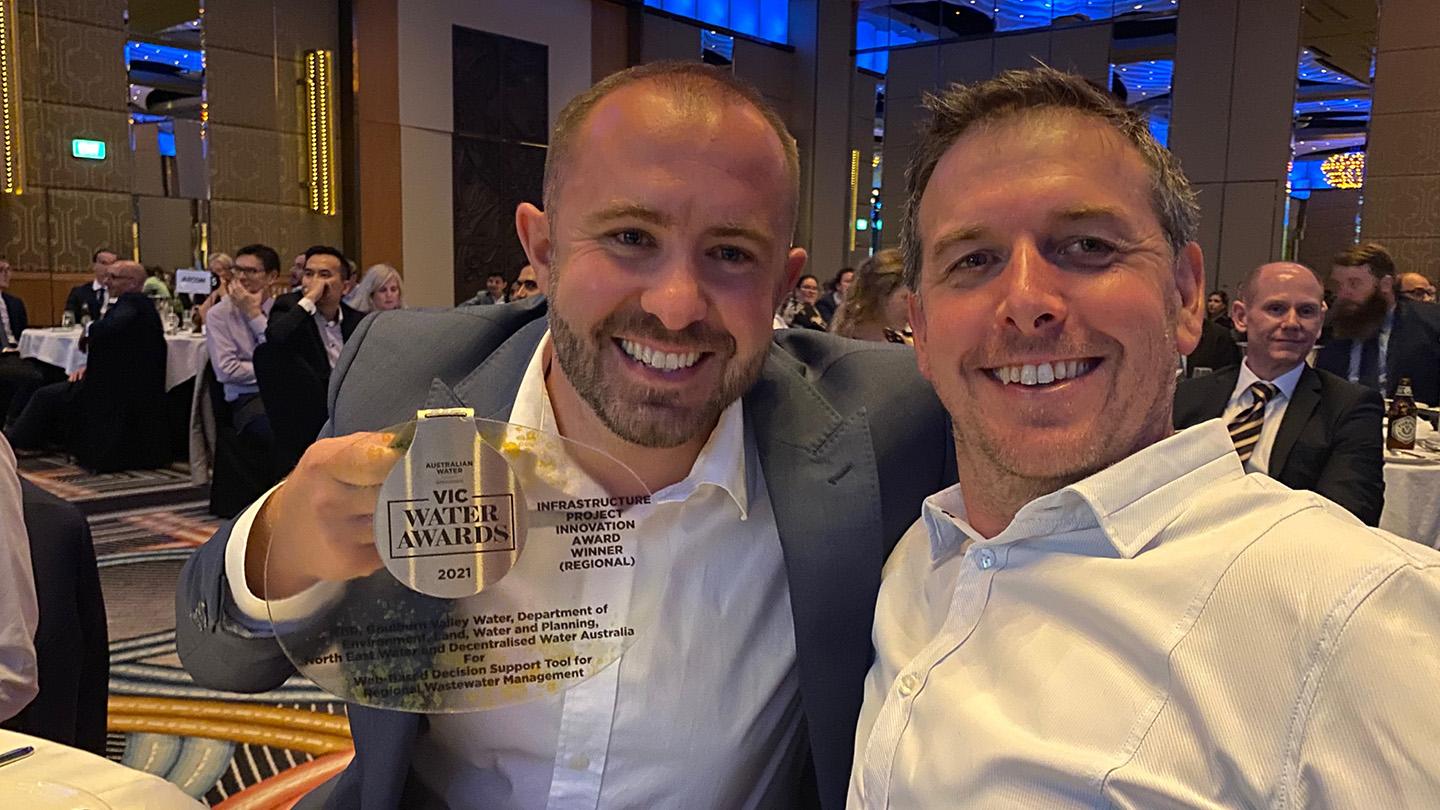KBR Contributes to Sustainable Wastewater Management Solutions Through New Digital Tool
How often do you overlook the quality of the water in your local waterways?
In Australia’s regions, many small towns’ domestic wastewater management options have the potential to impose negative health and environmental impacts – and the lengthy, complicated, and expensive process to alleviate these effects can create a barrier to the prosperity of regional communities.
In partnership with Decentralised Water Australia (DWA), KBR’s water resources team in Australia developed a Web-Based Decision Support Tool to identify sustainable, long-term wastewater management options for regional communities needing to transition away from onsite domestic wastewater management approaches. The Tool was developed for Goulburn Valley Water (GVW) as part of a Goulburn Broken Integrated Water Management Forum (GBIWM Forum) project in partnership with Department of Land, Water, and Planning (DELWP), North East Water, Campaspe Shire, Greater Shepparton City Council, Mitchell Shire, Moira Shire, Murrindindi Shire, Mansfield Shire, and Strathboogie Shire.
Using best-practice digital technology and freely available data, the tool adopts a holistic approach, supporting councils and other water managers in the early-phase decision-making process to assess the feasibility of alternative wastewater management options. The Tool is a digital cloud-based solution that guides the user through the option development process, enabling the use of updateable open-source data, and reduces the need for complex analysis and calculations.
The solution has enabled councils to better understand the costs and key factors influencing the feasibility of various wastewater management solutions and identify opportunities to implement integrated water cycle management, which is fundamental to reducing small towns’ carbon footprint and helping communities adapt and build resilience against the growing effects of climate change.
In addition to improving waterways, these opportunities include collection, treatment and reuse of wastewater and stormwater to provide alternative water sources for open green spaces. These future-focused sustainable solutions contribute to livelier communities and green spaces, enhancing wellbeing and liveability which generates opportunities for growth.
As proven during a successful pilot on ten regional Victorian towns in 2021, the tool provides councils with clear insights and enhances their understanding of the available options, costs, funding pathways and opportunities to incorporate integrated water management practices. It enables the opportunity for significant capacity building in regional towns and reduces the cost of conducting initial feasibility assessments for alternative wastewater management projects.
‘While the tool is designed to support the larger decision-making process, its ability to help councils identify cost-efficient, long-term, sustainable wastewater solutions will lead to a lasting impact on regional communities,’ says Josh Eggleton, National Industry Lead – Water Resources. ‘The tool’s adaptable features enable the possibility to broaden its functionality to use it as a platform for other projects into the future, which we are very excited to progress.’
Looking ahead, KBR is preparing to go to market to offer the Tool to the wider industry on a subscription arrangement, which will further support councils around the country to identify sustainable, long-term wastewater management options for regional communities.





